Understanding the Risks of Foreign Object Ingestion in Pets
What is Foreign Object Ingestion and Why Should Pet Owners Be Concerned?
At Cobb & Co. Veterinary Clinic, we see many cases of foreign object ingestion, a common yet serious issue in pets. Dogs and cats are naturally curious, often exploring their environment with their mouths. Unfortunately, this curiosity can lead to accidentally swallowing objects that their bodies cannot digest or pass safely.
Ingesting a foreign object can cause:
- Gastrointestinal obstruction, preventing normal digestion
- Tissue damage or perforation, leading to internal infections
- Toxicity, if the object is harmful when ingested
Recognizing and responding to this problem quickly can mean the difference between a minor intervention and life-threatening complications.
For more details on how gastrointestinal foreign bodies affect pets, read:
ACVS Guide to Gastrointestinal Foreign Bodies
Common Objects That Pets Swallow
Pets can ingest a wide variety of household items, including:
- Toys & Balls – Small or broken toys can become lodged in the intestines.
- Bones & Food Scraps – Cooked bones can splinter and puncture the stomach or intestines.
- Strings & Hair Ties – Cats often swallow string-like objects, which can cause dangerous intestinal entanglements.
- Socks, Underwear, and Fabric – These soft objects can form blockages that require surgery.
Learn about common household dangers in this AAHA guide: “Don’t Chew On This!”
Signs That Your Pet May Have Swallowed a Foreign Object
If your pet has ingested something unusual, early symptoms can help you recognize the problem before it becomes an emergency.
Key Signs of Foreign Object Ingestion:
- Vomiting or gagging
- Lethargy and lack of energy
- Loss of appetite or refusal to eat
- Straining to defecate or no bowel movements
- Abdominal pain (hunched posture, whining, restlessness)
In more severe cases, unresolved obstructions can cause life-threatening infections. If you notice any of these symptoms, seek veterinary care immediately.
Read more about gastrointestinal obstructions in dogs from Cornell Vet.
Diagnosis and Treatment at Cobb & Co. Veterinary Clinic
When a foreign object is suspected, a quick and accurate diagnosis is crucial. At Cobb & Co. Veterinary Clinic, we use:
- X-rays and Ultrasound – To locate objects and assess the risk of obstruction
- Endoscopy – A non-surgical method to retrieve objects from the stomach
- Exploratory Surgery – Necessary for objects lodged in the intestines or causing tissue damage
Treatment depends on the object and its location:
- Objects in the stomach – May pass naturally or require endoscopic removal.
- Objects in the intestines – Often require surgical intervention to prevent perforation.
- Toxic or sharp objects – Must be removed immediately to avoid poisoning or internal injuries.
Learn about exploratory surgery in pets and what to expect.
For details on our surgical care, visit:
Cobb & Co. Veterinary Surgery Services
Preventing Foreign Object Ingestion
1. Pet-Proof Your Home
- Keep small items, rubber bands, and fabric objects out of reach.
- Secure trash bins and store hazardous materials away from pets.
2. Supervise Playtime
- Use size-appropriate toys that cannot be swallowed.
- Discard damaged toys before small pieces break off.
3. Behavioral Training & Enrichment
- Train your pet to “drop it” or “leave it” on command.
- Provide plenty of chew-safe alternatives to satisfy chewing urges.
- Address anxiety-driven chewing habits.
Prevent behavioral issues before they become a problem with AVSAB’s guide.
For professional behavioral counseling, visit:
Cobb & Co. Veterinary Behavioral Counseling
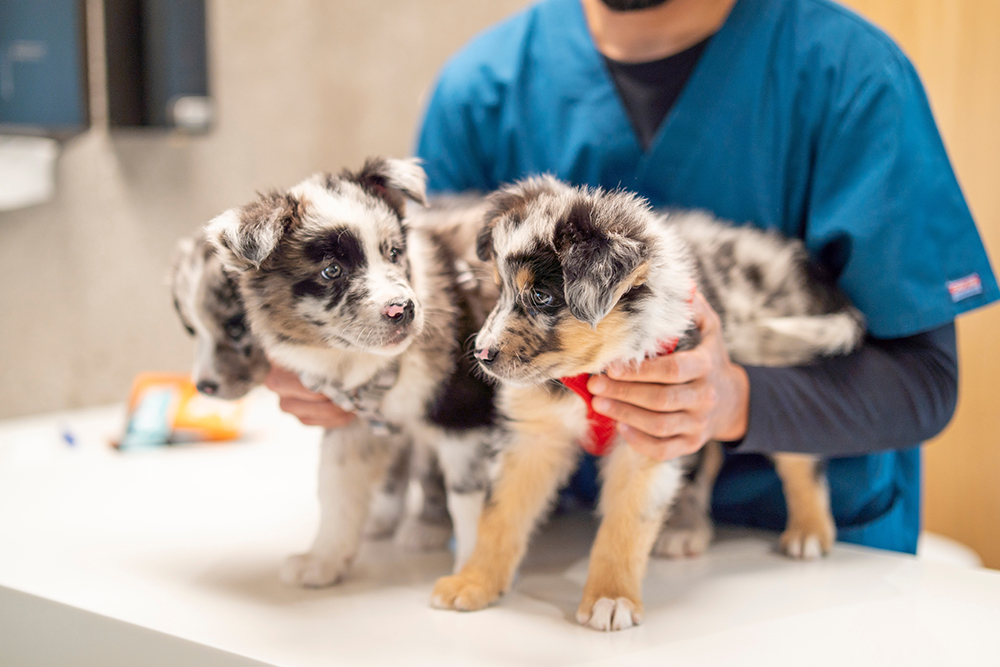
FAQs: Your Questions Answered
What should I do if I suspect my pet swallowed something dangerous?
- Call your veterinarian immediately—time is critical.
- Do not induce vomiting unless advised by a professional.
- Monitor for symptoms such as vomiting, lethargy, or refusal to eat.
Will my pet pass the object naturally?
- Some small, soft objects may pass without intervention, but blockages require veterinary care.
- X-rays or ultrasounds determine whether intervention is needed.
How can I prevent future incidents?
- Limit unsupervised access to small household objects.
- Encourage safe chewing habits with appropriate toys.
- Use behavior modification techniques to reduce inappropriate chewing.
Keeping Your Pet Safe from Foreign Object Ingestion
Foreign object ingestion is a serious but preventable issue. By recognizing symptoms early, responding quickly, and taking preventive steps, you can help protect your pet’s health and avoid costly emergency surgeries.
Need urgent care for a suspected foreign body ingestion?
Contact Cobb & Co. Veterinary Clinic now.

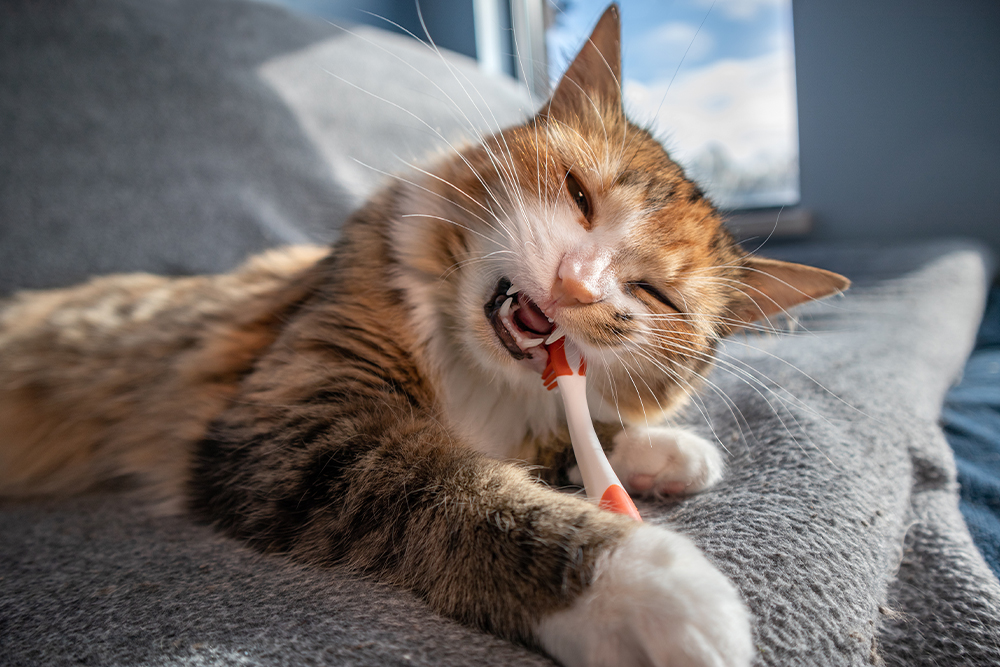
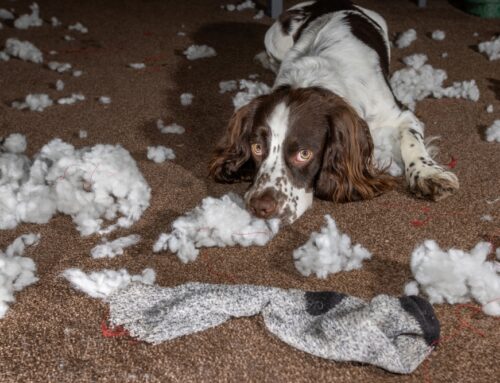
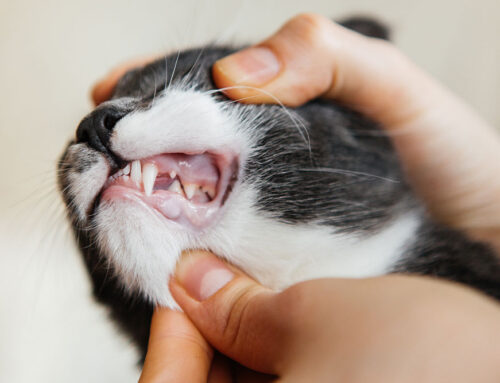
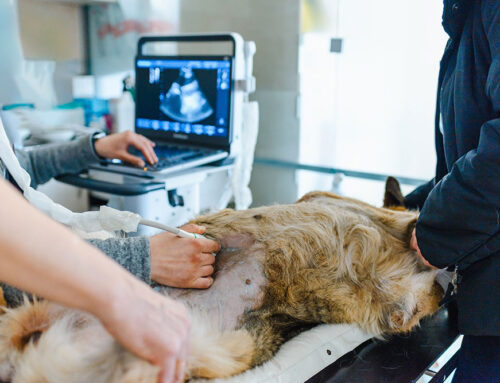
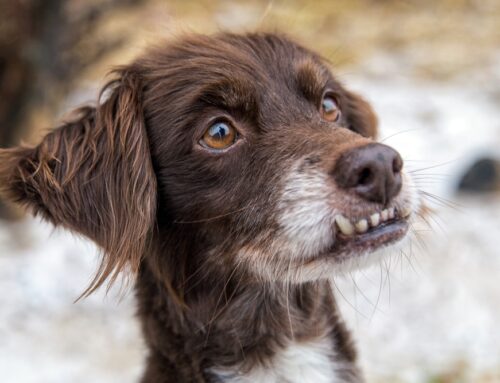
Leave A Comment